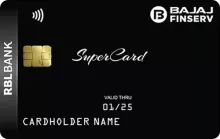IndianOil RBL Bank Credit Card
The IndianOil RBL Bank Credit Card is a fuel-focused credit card offered by RBL Bank in partnership with IndianOil. It has a ₹500 joining and annual fee, making it a budget-friendly option. If you often refuel at IndianOil petrol pumps, this card can help you save significantly. For every ₹100 spent on fuel at IndianOil stations, you earn 10 Fuel Points, where each point is worth ₹0.50. This translates to a 5% reward on fuel spending, and with the added fuel surcharge waiver, total savings can reach up to 6%. This makes the card a great choice for those looking to cut down on fuel costs while enjoying easy-to-earn rewards.
This IndianOil RBL Bank Credit Card competes well with similar fuel credit cards from banks like HDFC, Axis, and Kotak Mahindra. It allows cardholders to redeem Fuel Points for up to 100 liters of free fuel every year. Additionally, Fuel Points can also be earned on non-fuel purchases at a lower rate. Given its affordability and high fuel rewards, this card is ideal for first-time credit card users and regular commuters. If you're looking for a simple way to maximize savings on fuel, the IndianOil RBL Bank Credit Card is a strong option to consider.
Rewards and Benefits
Fees & Charges
What are the joining/annual charges for the IndianOil RBL Bank Credit Card?
The IndianOil RBL Credit Card can be availed by paying a joining and annual charge of ₹500.
Is the IndianOil RBL Credit Card available on the RuPay network?
Yes, the IndianOil RBL Credit Card is available on the RuPay network and can be easily linked to various UPI applications.
How many Fuel Points can I earn on fuel purchases?
You earn 10 Fuel Points for every ₹100 spent at IndianOil fuel stations and 1 Fuel Point for every ₹100 spent on other eligible purchases.
How can I redeem my Fuel Points?
Fuel Points can be redeemed for free fuel at IndianOil petrol pumps, petrol vouchers, or through the RBL Bank rewards portal.
Is there a fee waiver available for this card?
Yes, the annual fee is waived if you spend ₹1.75 lakh in a calendar year.





Leave a Reply